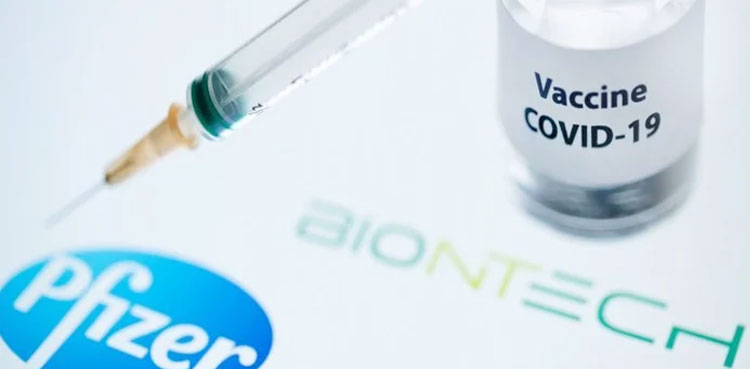
The US National Institutes of Health said on Wednesday it had begun a mid-stage study to determine the risk of allergic reactions to COVID-19 vaccines made by Moderna and Pfizer.
Several allergic reaction incidents, including serious episodes, known as anaphylaxis, have been reported in the US after vaccinations of Pfizer/BioNTech and Moderna shots.
In January, the US Centers for Disease Control and Prevention said allergic reactions are occurring at a rate of 11.1 per 1 million vaccinations.
The study, funded by the National Institute of Allergy and Infectious Diseases, will enroll 3,400 adults between the ages of 18 to 69, with about 60% participants having a history of severe allergic reactions to food, insect stings or immunotherapy.
Related
Pfizer COVID-19 vaccine ‘100% effective’ on 12-15 year olds
The goal of the trial is to access the proportion of participants who have a systemic allergic reaction within 90 minutes after injection.
The agency expects to report data later this summer.
About Pfizer vaccine
The Pfizer BioNTech COVID-19 vaccine is a messenger RNA (mRNA) vaccine that has both synthetic, or chemically produced, components and enzymatically produced components from naturally occurring substances such as proteins. The vaccine does not contain any live virus.
Its inactive ingredients include potassium chloride, monobasic potassium, phosphate, sodium chloride, dibasic sodium phosphate dihydrate, and sucrose, as well as small amounts of other ingredients
About the Moderna vaccine
The Moderna COVID-19 Vaccine is an mRNA vaccine against COVID-19 encoding for a prefusion stabilized form of the Spike (S) protein, which was co-developed by Moderna and investigators from the National Institute of Allergy and Infectious Diseases’ (NIAID) Vaccine Research Center.
The first clinical batch, which was funded by the Coalition for Epidemic Preparedness Innovations, was completed on February 7, 2020 and underwent analytical testing; it was shipped to the National Institutes of Health (NIH) on February 24, 2020, 42 days from sequence selection
The post US begins study on allergic reaction risk in Moderna, Pfizer vaccines appeared first on ARY NEWS.


0 Comments